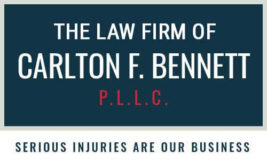If your parent resides in one of Virginia’s many nursing homes, you should familiarize yourself with the growing practice of chemical restraint that many nursing homes use to control patients who become loud, uncooperative or obstreperous. Human Rights Watch recently conducted an investigation of over 15,000 nursing homes nationwide, the results of which were alarming at best.
What HRW found is that the staffs of far too many nursing routinely dose their dementia and Alzheimer’s disease patients with antipsychotic drugs in order to manage them more easily. The three most common drugs used for this purpose consist of the following:
- Seroquel
- Haloperidol
- Risperidone
Unauthorised drug administration
Not only are anti psychotic drugs contraindicated for people suffering from Alzheimer’s disease or dementia, but no doctor had prescribed their usage in the affected patients. Furthermore, virtually none of the nursing home patients so dosed or their families had any idea that “caregivers” were chemically restraining them.
Governmental oversight failure
Despite the fact that the Nursing Home Reform Act of 1987 protects your parent from such nursing home malpractice, the Centers for Medicare & Medicaid Services, the government agency responsible for enforcing NHRA mandates, has seriously failed to do its job with regard to chemical restraints. For instance, in a recent four-year period, the CMMS issued only 7,029 citations to nursing homes engaged in unauthorised anti psychotic drug administration. Worse yet, it ignored the mandatory fines provisions, collecting only 3% of them. The supposed justification? The CMMS declared that the other 97% of nursing home patients so dosed suffered “no actual harm.” In addition, the CMMS has placed a moratorium on the Food and Drug Administration’s ban on anti psychotic drug usage for patients suffering from dementia and/or Alzheimer’s disease.
Should your parent suffer from one of these conditions, you need to be highly vigilant about the medications (s)he receives in his or her nursing home. Do not be afraid to ask plenty of questions, especially of your parent’s attending physician and the nurses administering medications to your parent.
This is general educational information and not intended to provide legal advice.

 June 4, 2019
June 4, 2019